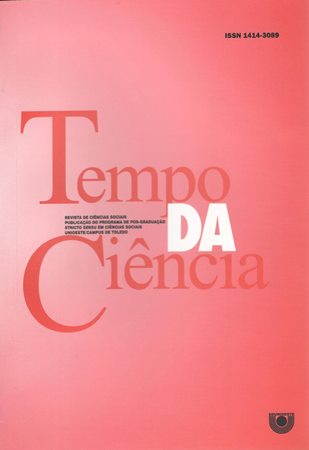CONSELHOS MUNICIPAIS DOS DIREITOS DA CRIANÇA E DOS ADOLESCENTES PARA ALÉM DO CONTROLE
DOI:
https://doi.org/10.48075/rtc.v19i37.9100Keywords:
controle social, controle, deliberação, CMDCA.Abstract
The paper discusses, based on the Municipal Councils for the Rights of Childrenand Adolescents, the existence of a conflict between the legal powers of deliberation aboutpublic policy directed to children anda adolescentes and control of such policies. This tensionhas implications for the dynamics of the discussions and the impacts of institutionalidentity, and the relationship between government and the Municipal Council. The observationof a predominant feature of control, as observed by Cunha (2007, p. 22), leads to theconclusion that the ability to intervene in the direction of the policy itself is impaired. Todemonstrate that the Municipal Council of Child and Adolescent has assumed an identity ofbody merely controller, four surveys were brought: from Tatagiba, about CMDCA of SaoPaulo; from Cunha on the Councils of Health and Children and Adolescents in the Northeast;from Dombrowski, on the advice of the institutionalization of the councils, among which thechild and teenager of Toledo/PR and ours on the effectiveness of the deliberative CMDCAToledo/PR. The researches have proven the institutionalization of the councils by the controland the low productivity of deliberative, showing that social control has been received bythese institutionalities as synonymous with the state monitor the performance of theirduties. This work also pursues the explanations brought about by the researches and contributesto the discussion by tracing the limits of performance of the Government and theCouncils, in order thereby to change the current pattern of their relationship.Downloads
Published
How to Cite
Issue
Section
License
Aviso de Direito Autoral Creative Commons
Política para Periódicos de Acesso Livre
Autores que publicam nesta revista concordam com os seguintes termos:
1. Autores mantém os direitos autorais e concedem à revista o direito de primeira publicação, com o trabalho simultaneamente licenciado sob a Licença Creative Commons Attribution que permite o compartilhamento do trabalho com reconhecimento da autoria e publicação inicial nesta revista.
2. Autores têm autorização para assumir contratos adicionais separadamente, para distribuição não-exclusiva da versão do trabalho publicada nesta revista (ex.: publicar em repositório institucional ou como capítulo de livro), com reconhecimento de autoria e publicação inicial nesta revista.
3. Autores têm permissão e são estimulados a publicar e distribuir seu trabalho online (ex.: em repositórios institucionais ou na sua página pessoal) a qualquer ponto antes ou durante o processo editorial, já que isso pode gerar alterações produtivas, bem como aumentar o impacto e a citação do trabalho publicado (Veja O Efeito do Acesso Livre).
Licença Creative Commons
Esta obra está licenciada com uma Licença Creative Commons Atribuição-NãoComercial-CompartilhaIgual 4.0 Internacional, o que permite compartilhar, copiar, distribuir, exibir, reproduzir, a totalidade ou partes desde que não tenha objetivo comercial e sejam citados os autores e a fonte.


